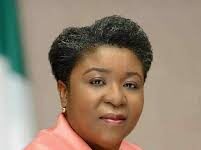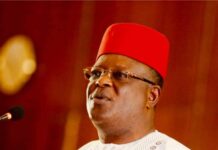SPECIAL REPORT: A Peek Into Northern Nigeria’s Battle Against COVID-19
POLITICS DIGEST – Since the deadly Coronavirus disease, otherwise known as COVID-19 encroached the shores of the country through an Italian citizen who works in Nigeria and flew into Lagos from Milan on the 25th of February, 2020, apprehension has continued to flare. In a country of about 200 million people whose existing public health facilities cannot boast of containing an outbreak on the scale of what other countries overwhelmed by the pandemic are going through.
On the 17th of March, 2020 the Nigeria Center for Disease Control (NCDC) under the leadership of Consultant epidemiologist, Chike Ihekweazu called for a meeting of medical experts across the country to appraise the country’s preparedness for the pandemic.
This came just a week after the World Health Organization (WHO) declared the novel Coronavirus a global pandemic and exactly 20 days after, Nigeria reported its index case courtesy of an Italian man.
Northern Governors React
As the fight to contain COVID-19 became increasingly intense, a scare of the infectious virus surfaced in Katsina, one of the states bordering Kaduna city of about one million that was once the capital of the British Northern Nigerian protectorate – even though the case proved negative the following day, Northern leaders did not take the threat of this ravaging pandemic lightly.
State Governors swung into action with various containment strategies ranging from the inauguration of various task forces to combat the possible spread and prepare for eventuality, policy pronouncements, restriction of movements and fumigation.
Of the 36 state governors in the country, Nigeria’s North-Western Governors were the first to take proactive measures with Zamfara, Sokoto, Katsina, Kano, Jigawa, Kebbi and Kaduna States closing down schools for 30 days from 23 March.
Chairman of the forum and Katsina state Governor, Aminu Bello Masari, a former speaker of Nigeria’s House of Representatives, said the decision to take action became crucial to prevent the spread of Coronavirus across the Northwest.
The Kaduna state government also announced the indefinite postponement of the 2020 edition of the Kaduna Investment Summit that has attracted key industry players in the last four years such as the Africa’s richest man, Aliko Dangote, and was supposed to have Rwanda’s President Paul Kagame present for this year’s edition.
Kaduna, Kano and other Northern states have also started to fumigate markets, in a bid to keep the virus at bay.
Imposing a lockdown, all shops that sell non-essential items must close and movements restricted, by order of the Kaduna State Governor Nasir El-Rufai who unfortunately later tested positive for the virus.
On 30 March, Adamawa State government announced the closure of their state borders for fourteen days with effect from 31 March 2020, ordering a total lockdown in the state. The state government also announced that the ban affects tricycle, taxis and bus operators throughout the state. The state also banned social activities and ordered the closure of all markets, except for those selling foodstuff, pharmaceutical supplies, filling stations, directing banks to provided skeletal services.
On 31 March, Bauchi State government announced the closure of their state borders for fourteen days with effect from 2 April, ordering a total lockdown in the state and exempting essential services. Kwara State government followed suit by announcing an indefinite closure of the state borders with immediate effect, exempting only vehicles carrying agricultural produce, medical equipments, and officials on essential duties.
Similarly, on 1 April, Taraba State announced the banning of all public gatherings of more than 20 persons in the state. The state government also ordered the closure of all markets with immediate effect, except those providing essential services such as; pharmacies, food stores and petrol service stations. This followed an earlier order on the 28th of March by the Taraba state government announced the closure of their state borders with effect from 29 March on the same day Kebbi State government announced the restriction of all entries into and out of the state with immediate effect.
Earlier, Nasarawa State government banned all social and religious gatherings of more than 50 persons, including weddings, churches services and mosque prayers with immediate effect. The state government also announced the restriction of all movement into the state. Niger State government banned the intra and inter-state movement of people and vehicles, exempting only vehicles carrying food items, fuel, medical supplies and other essential services. Zamfara State government announced the closure of their state borders with effect from 28 March 2020. Bayelsa State government announced an immediate closure of their sea and land borders into and out of the state.
Katsina State government had also announced the closure of their state borders from 28 March, allowing only fuel takers and vehicles conveying food items and other essential commodities, but with subject to screening and testing at the point of entry with Sokoto State Government announcing the same measure a day earlier.
Kano, Kogi and Kwara States all announced an indefinite closure of their air and land borders into and out of the state with Bauchi State Government going the extra mile to close markets in the state with the exception of those selling essential commodities like food items and medicine.
Yobe State also swung into proportional action by closing all their schools from March 26th while Borno among other measures banned visitors from entering all Internally Displaced Persons Camps (IDPs) for four weeks with Gombe state banning inter-state travels and all forms of social and religious gatherings with effect from 29th March, 2020 while also urging religious and spiritual leaders to pray against the global pandemic.
Testing Centres
With the dearth of ventilators, oxygen concentrators, cardiac respiratory monitors and all other things required to manage a sever COVID-19 patient, lack of evenly spread testing centers across the North is proving to be an even greater concern.
Chairman of the Gombe state task force on COVID – 19, Professor Idris Mohammad at a press briefing on Wednesday, lamented that the North East for example has no single testing center. He however disclosed that the State has placed an order for Polymerase Chain Reaction (PCR) Machines following the approval for the establishment of a testing center in Gombe by the state governor, Muhammadu Inuwa Yahaya.
The Task Force Chairman stated that, “we have made tremendous progress since our coming onboard, I am pleased to inform you that there are three possible centers for testing which should come on stream in the next couple of weeks or so.”
With four of the seven Nigerian Test concentrated in the South-West, one in the South South, one in the South East and one in Abuja, Nigeria’s Health Minister, Osagie Ehanire has assured that Nigeria is increasing test centres.
The NCDC has said that other diagnostic centers are being upgraded in Maiduguri, Kano, Sokoto, Port Harcourt, Jos and Katsina.
The Viral Spread
So far, Nigeria has tested over 2,000 people for COVID-19 with less than 10 percent testing positive. The Director General of the NCDC, Chikwe Ihekweazu also confirmed that the agency was working to track about 6,000 people who have been in contact with persons who tested positive to the virus.
However, as at the time of this report, of the 174 confirmed cases in the country, the North has only eight official cases with four in Kaduna, three in Bauchi and One in Benue state.
Citizens React
Despite the effectiveness of the series of restrictive and lockdown measures adopted by state governments to curb the spread, the effort may have paid off on one angle while also being defective on another angle. For instance, the closure of schools and work places may have gone a long way in curbing the spread, but lockdowns are not going well with citizens who have barely enough to eat after a day’s struggle. To that end, a lot of citizens across some areas are not observing the stay at home measure due to the fear for hunger.
A tricycle rider who simply identified himself as Idris told Arewa Agenda that, “I would rather step out and let the virus kill me rather than allow hunger to kill me and my family because if I stay home, hunger will kill me, if I step out Coronavirus may kill me and in any case, death by hunger seems more excruciating than death by this virus.”
Another resident whose daily bread relies on how many fingernails he can cut for people per day said, “I just pray this situation doesn’t come to the point of imposing curfew for us in Kano state. In any case, if it does, I will defy it because I rely heavily on this work (manicure and pedicure) that I am doing to stave off hunger.
The situation is not a far cry from what is obtained in other parts of the region.
Nigeria’s North accounts for about 80 percent of all the poor people in the country. Only 24 percent of households have access to basic services such as electricity, water and sanitation. Compounded with that is the fact that about ten million children remain out of school and roam the streets begging as part of an Almajiri system of religious education.
With the low rate of cases so far in the North, perhaps this region is better off with the containment strategy. Therefore, government should as a matter of urgency put in place relief measures that will enable citizens survive hunger as they abide by necessary measures put in place for safety. Otherwise, the move from containment to curative strategy will be inevitable, a situation that evidently may pose greater public health challenge.
Via: Arewa Agenda

















